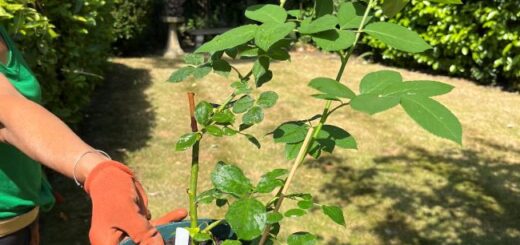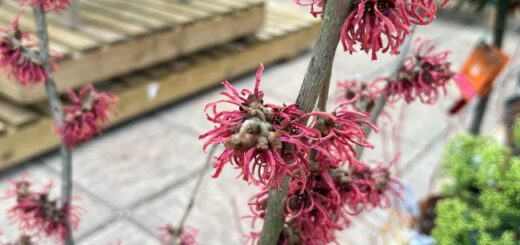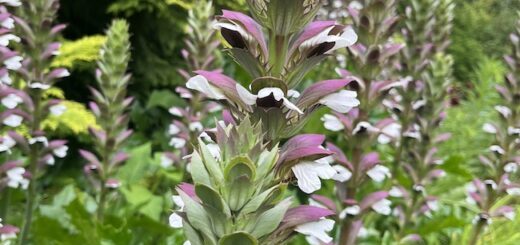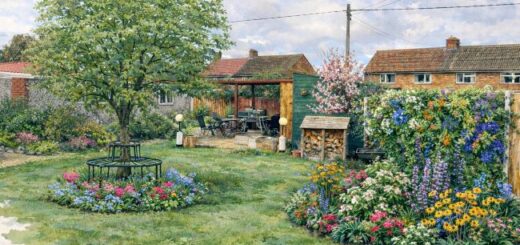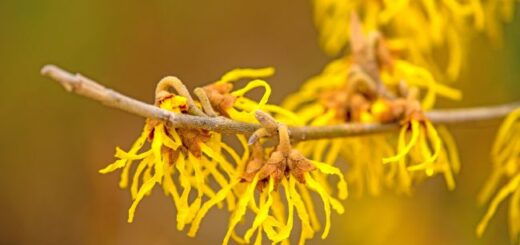GardenAdvice Weekly Gardening Calendar Last Week in October
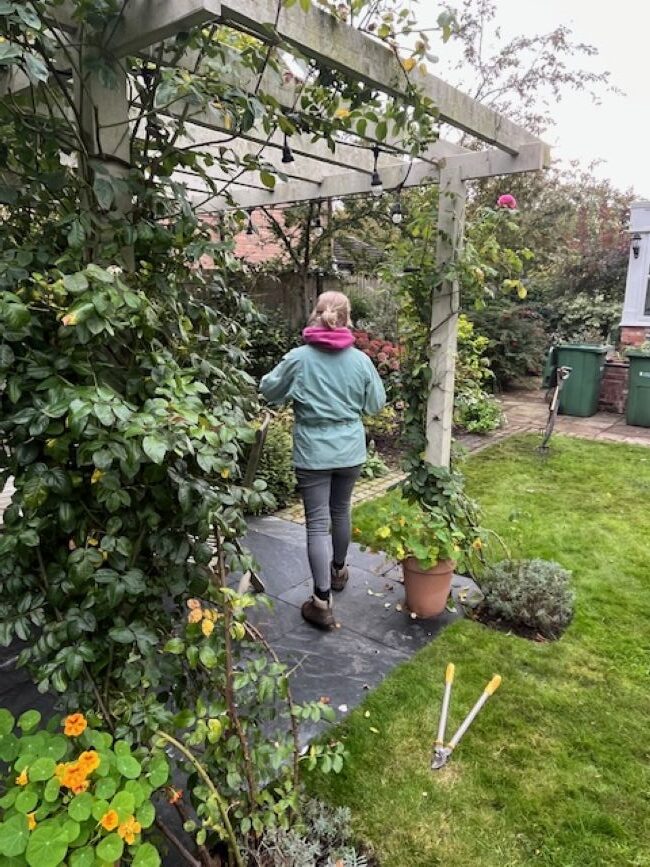
As October draws to a close, the garden begins its transition into winter rest. This is a great time to prepare your beds, tidy up fallen leaves, and think ahead to next year’s planting plans. Whether you’re managing a vegetable patch, tending borders, or looking for seasonal gift ideas, these late-October tasks will help keep your garden healthy and productive.
Compost Leaves
Rake up fallen leaves and add them to your compost heaps. If you don’t already have one, old wooden pallets make excellent compost bins — economical and eco-friendly. Remember to turn any existing compost piles gently to aerate them and avoid disturbing wildlife that may have taken shelter inside.
Learn more about composting leaves
Feed and Mulch
Now’s the time to replenish your soil’s nutrients before winter. Feed your vegetable garden and borders with Growmore fertilizer — about one handful per square metre. After feeding, apply a generous layer of mulch such as compost, well-rotted manure, or spent mushroom compost. This helps protect the soil structure and suppress weeds over winter.
Guide to mulching your garden
Clean the Greenhouse
Give your greenhouse a thorough clean to prepare for the colder months. Wash glass panes with a mild disinfectant to remove algae and grime, and consider using a fumigating smoke to control mildew and overwintering pests. A clean greenhouse allows more light in and reduces disease risk for next year’s seedlings.
Greenhouse cleaning tips
Plan Ahead
Use this quieter gardening week to start planning next year’s vegetable garden. Review what worked well this season, think about crop rotation for your vegetable beds, and make a list of seeds you’ll need to order over winter.
Garden planning tools and advice
Gift Idea
Looking for a thoughtful Christmas gift for a gardener? Consider a one-day GardenAdvice Gardening Course — perfect for beginners or those looking to improve their skills. Gift vouchers are available and make an inspiring present for friends and family who want to get into gardening.
Find out more about GardenAdvice gardening courses as a Christmas Gift for friends and family
Alan and Helen chat through the GardenAdvice Weekly Gardening Calendar last week in October Audio File
The Audio Transcrpt
Helen 0:00
Welcome back to the GardenAdvice gardening calendar deep dive. This is where we take a source, sometimes a whole stack of them, and really boil it down to the core knowledge you can use right away. And if you look outside, well, you know where we are on the calendar. October is nearly over for gardeners. This is it’s crunch time, isn’t it. It’s that pivot before everything shuts down for winter. We’re talking about those last vital prep tasks that really set you up for next season. Today, we’ve got a very specific source, the GardenAdvice Weekly Gardening Calendar, specifically for this last week in October. So it’s not just general tips, it’s dated, structured advice.
Alan 0:34
Exactly. And our mission, really, for you listening, is to pull out the five key actions from this calendar. These are the things you well you really shouldn’t put off doing them now, boost soil health, prevent problems later, and make sure you get the best results come spring. It’s about using that structured knowledge now,
Helen 0:52
Right? It boils down to prepping beds, tidying up and doing it smartly and getting your head straight for next year’s plans. Saves a lot of hassle later. Okay, so let’s unpack this first up, dealing with probably the most obvious thing right now,
Alan 1:07
All those leaves. Yes, mountains of them. The calendar starts right there. Rake them up, get them into the compost. It’s turning waste into, well, gold for your garden next year. You can check out their October calendar for more details.
Helen 1:16
Simple cleanup, but with a big payoff. Now, what if you don’t have a compost system set up, I noticed a really neat, practical tip in there.
Alan 1:23
Ah, yes, the pallets. It mentions that if you need a bin, old wooden pallets are great. They’re cheap, often free, actually, and really eco friendly. Plus, they work really
Helen 1:33
Well. Are they just a temporary fix, though, or can you rely on them?
Alan 1:37
Oh, no. They’re a perfectly good long-term solution. And many people prefer them, because the gaps, they let air circulate really well.
Helen 1:53
Great. So clean up, sustainability, DIY, structure check. But then the advice gets a bit more sensitive, maybe turning existing compost piles. The calendar says, Do it gently. Why the emphasis on gentle?
Alan 2:07
This is a lovely detail, actually shows real care. The main reason is wildlife.
Helen 2:11
Wildlife in the compost heap?
Alan 2:15
Yes, as it gets colder, creatures like hedgehogs, maybe slow worms, lots of beneficial insects, they look for somewhere warm and safe to hibernate. And a compost heap that’s actively decomposing generates heat. It’s like a little self-heating hotel for them.
Helen 2:50
That’s a really important point. Okay, so we’ve handled the leaves and compost with care. The calendar then says, right, let’s feed the soil. Why now?
Alan 3:01
Two key reasons: the soil’s still got a bit of warmth for microbes to work, and it’s best to add nutrients before heavy winter rains. The calendar recommends using Growmore fertilizer for vegetable gardens and borders.
Helen 3:58
So we’ve fed the soil, but the calendar immediately follows that with mulching. Why that order — feed, then mulch?
Alan 4:06
Think of it like putting on food, then tucking it in with a blanket. You apply the fertilizer, and then a mulch layer — compost, well-rotted manure, or spent mushroom compost — protects the soil and retains nutrients.
Helen 5:34
That’s a really solid outdoor plan. Okay, let’s step inside now, away from the soil, because prepping isn’t just outdoors. The greenhouse needs attention too.
Alan 5:45
Absolutely vital step. A greenhouse can harbor fungal spores, algae, and pests. The GardenAdvice October guide recommends washing the glass with mild disinfectant to boost light and reduce disease risk.
Helen 6:28
And on that note, there was something else mentioned. A fumigating smoke — sounds quite intense.
Alan 6:37
That’s more for serious infestations, like whitefly or mildew, especially in larger greenhouses. But for most, a good washdown is enough.
Helen 7:23
Now we get to the more strategic bit — the mental shift. Planning for next season.
Alan 7:42
Exactly. First step: reflect on what worked and what didn’t. Do it now, while it’s fresh in your mind.
Helen 8:05
Okay. Makes sense. Learn from the immediate past. And after reviewing, there’s the big one — rotation.
Alan 8:13
Yes. Crop rotation helps avoid nutrient depletion and disease build-up. Plan it now while you still remember where everything grew.
Helen 8:40
True. Okay, review, rotate. And the third step links to buying things.
Alan 8:45
Yes. Order your seeds early. Especially heritage or unusual varieties. Many GardenAdvice kitchen garden tasks rely on good prep now.
Helen 9:39
Ah, yes, the gift idea. It ties back nicely — a voucher for a GardenAdvice gardening course makes a perfect gift for someone learning or wanting to improve.
Alan 10:25
It really shows gardening isn’t just seasonal bursts of activity, is it? It’s cyclical, ongoing. Taking these actions now directly impacts how much work you’ll have later and how successful you’ll be. It’s all about applying that knowledge at the right time for the best results.
Helen 10:54
Yeah, very clear. Leaves little room for procrastination.
Alan 10:58
Exactly. So here’s the question — what could you achieve in other areas if you adopted this kind of specific, dated, structured planning?
Helen 11:29
Indeed. That’s all we have time for on this deep dive. Thanks for joining us, and we’ll catch you next time.

